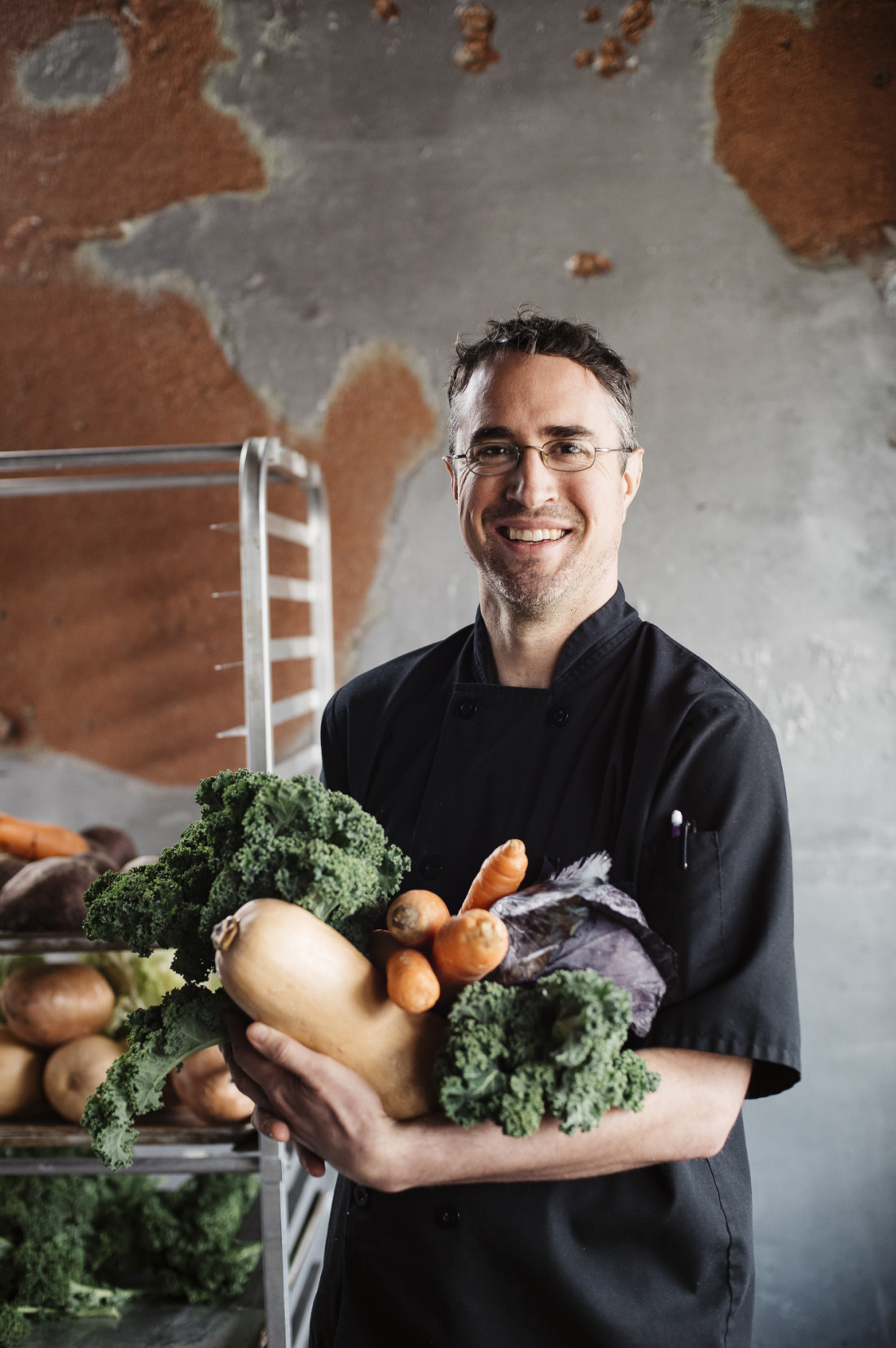Just because the skies are gray and temperatures are cool doesn’t mean you can’t enjoy fresh vegetables in the warmth of your home or at a local restaurant. Xpress asked three Asheville chefs to share what’s cooking in their kitchens and offer some recipes for you to try in yours.
Justin Burdett, chef and owner at Local Provisions, says local farmers are bringing in lots of winter greens, roots and tubers right now. So guests at his downtown restaurant will likely find on the menu radishes, turnips, beets, carrots and other vegetables that can stand up to the cold. “We’re also using citrus,” says Burdett. “Items like clementines and blood oranges, where possible, to add some brightness.”
Local Provisions, as its name suggests, sources ingredients primarily from area farmers and foragers. Right now, most of its vegetables are coming from Ten Mile Farm, The Culinary Gardener and Big Ivy Little Farm, says Burdett. All of these farms use small greenhouses or hoop houses to grow seasonal vegetables like bok choy, cauliflower and broccoli that are slightly more perishable and must be protected from ice, snow and extreme cold.
“For the most part, simple is better when it comes to cooking winter vegetables,” Burdett says. “For example, kale is somewhat of a minimalist. I like to sauté it with onions and garlic and finish it off with grated pecorino. It’s clean and light.”
He also suggests roasting cauliflower or local baby carrots in a mustardy vinaigrette using equal parts Dijon mustard and olive oil, juice from half a lemon and a pinch of salt and pepper. “Toss the roasted vegetables in the vinaigrette and put back in the oven. Roast them until the vinaigrette caramelizes and serve warm,” he says.
Also, when it comes to roasting, Burdett says people should “be open to radishes,” although he strongly recommends sourcing them from a local market, as grocery store varieties typically have lots of pesticide residue. “You can do a traditional roast in olive oil and salt and pepper,” he says. “Or you can roast them in lemon juice to make them bright and acidic. They also make great icebox pickles.”
Mashed root veggies is another option Burdett recommends, such as mashing parsnips and turnips together in lieu of the more traditional potatoes. “I make mashed parsnips for Thanksgiving every year,” he says.
Meanwhile, at North Asheville’s Avenue M, executive chef Philip Friesen spotlights butternut squash in the Moroccan tagine, kale in a spicy ginger tofu dish and beets roasted in a salad. All the vegetables, says Friesen, are sourced locally whenever possible.
Friesen says that one of the easiest ways to prepare kale is to julienne it and use it to replace part or all of the cabbage in coleslaw. Kale also takes to marinades very well, he adds, as it has a robust texture and flavor.
Like Burdett, Friesen is a fan of parsnips. He suggests peeling then roasting them with fresh rosemary and serving with a touch of honey.
Spaghetti squash is also a favorite. He advises home cooks to cut the squash in half, drizzle with some olive oil and bake it at 350 degrees for about 45 minutes to an hour, depending on size. “Baking it in the oven provides a versatile alternative to pasta and is also gluten-free,” he points out, noting that it can also add a slightly sweet flavor to other dishes.
At the vegetarian landmark restaurant Laughing Seed Café, greenhouse items are popping up in the house salads this winter, including organic kohlrabi, sunflower and amaranth sprouts from Asheville’s Micro Man Micro Greenery and several different types of lettuce from Serious Dog Farm. Also popping up on the menu are kale, beets, mushrooms and sweet potatoes. “We try to get local produce whenever it is available,” says manager Jericho Michel. “Right now most of our featured items are coming from Robertson Farm and Orchard Valley, which are local, regional farms.”



Before you comment
The comments section is here to provide a platform for civil dialogue on the issues we face together as a local community. Xpress is committed to offering this platform for all voices, but when the tone of the discussion gets nasty or strays off topic, we believe many people choose not to participate. Xpress editors are determined to moderate comments to ensure a constructive interchange is maintained. All comments judged not to be in keeping with the spirit of civil discourse will be removed and repeat violators will be banned. See here for our terms of service. Thank you for being part of this effort to promote respectful discussion.